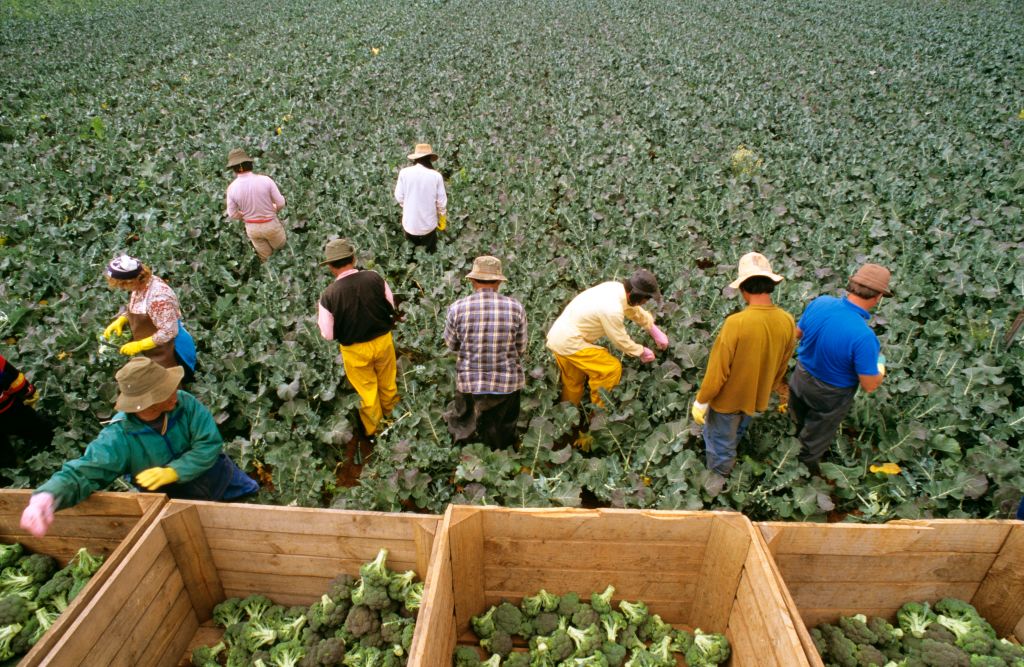



Article by: Hari Yellina
For its role in using illegal employees, Australia’s top asparagus and broccolini farmer has been fined $60,000. After pleading guilty to eight charges of permitting an illegal non-citizen to work, M&G Vizzarri Proprietary Limited, led by Giuseppe Vizzarri, was found guilty of violating the Migration Act. It also faced an allegation of violating a job-related condition by allowing a lawful non-citizen to work. Officers from the Australian Border Force and the Australian Federal Police discovered nine illegal employees on the Koo Wee Rup farm in Melbourne’s east end in December 2016. Judge Trevor Wraight said in County Court this morning that men were paid $15 an hour and women were paid $14.
Sarith Kit was sentenced to prison last year for his role in an illegal worker operation that involved employing undocumented workers from Indonesia, Cambodia, Malaysia, and Thailand. Judge Wraight stated, “The unlawful workers considered Mr Kit to be the boss and Mr Vizzarri to be Mr Kit’s supervisor.” If the company had not pleaded guilty, he said he would have penalised it $100,000. “It wasn’t an early plea,” Judge Wraight observed, “but it still has enormous utilitarian value.” He also took into account the company’s “prospects of rehabilitation” and subsequent lack of criminal activity.
According to statistics, the number of seasonal workers who absconded from their employer increased from 225 to 1,181 in the previous year, forcing the Department of Foreign Affairs and Trade (DFAT) to issue a poster warning absconders that “you may bring shame to your family’s name.” Following a backlash, the Department of Foreign Affairs and Trade (DFAT) is evaluating the posters, which are no longer accessible for download on its website.
Workers are briefed before departure and upon arrival in Australia to ensure they understand their visa entitlements, according to an Australian government spokeswoman. There is a “zero tolerance” policy to worker exploitation, according to the spokesperson. Human rights lawyers claim that the high rate of absconding is due to widespread abuse and salary fraud under the Seasonal Worker Program, and that a class action lawsuit is currently being filed.
However, according to Joanna Howe, a migration law specialist, those under the Seasonal Worker Program fare better than others in the migrant farm worker hierarchy. “There are some horrific examples of abuse in that programme – unauthorised deductions, high lodging charges, salary theft – but the reason we find out is because it’s a regulated programme,” she said. “The irony is that [the Seasonal Worker Program] is the most tightly regulated of all the schemes we have in Australia to bring temporary workers onto farms.” “There are certain temporary migrants who are significantly more susceptible than others.” Those working on farms without proper visas, sometimes known as undocumented workers, are one such group.
Undocumented employees are estimated to number between 60,000 and 100,000 on Australian farms, according to studies. “I believe most Australians would be startled to learn that we’ve all eaten fruit and vegetables harvested or packed by an undocumented worker,” Ms Howe said. She claims that most undocumented employees pay a high price to a “shady” migration consultant to arrange their visa and a well-paying job, only to arrive and learn they are on a tourist visa with no permission to work. They will most likely meet an unscrupulous labour hire contractor who will transport them to the countryside, where they will be forced to work on farms in order to clear their loan.
The federal government has proposed new legislation that, if passed, would make it illegal to exploit a person’s immigration status in the workplace. There are also proposals to address farm labour shortages by introducing a new agriculture visa for employees from Southeast Asia that includes a path to permanent residency. As one employee put it, “Your food is chosen by us. Simply treat us as if we were your neighbours.”